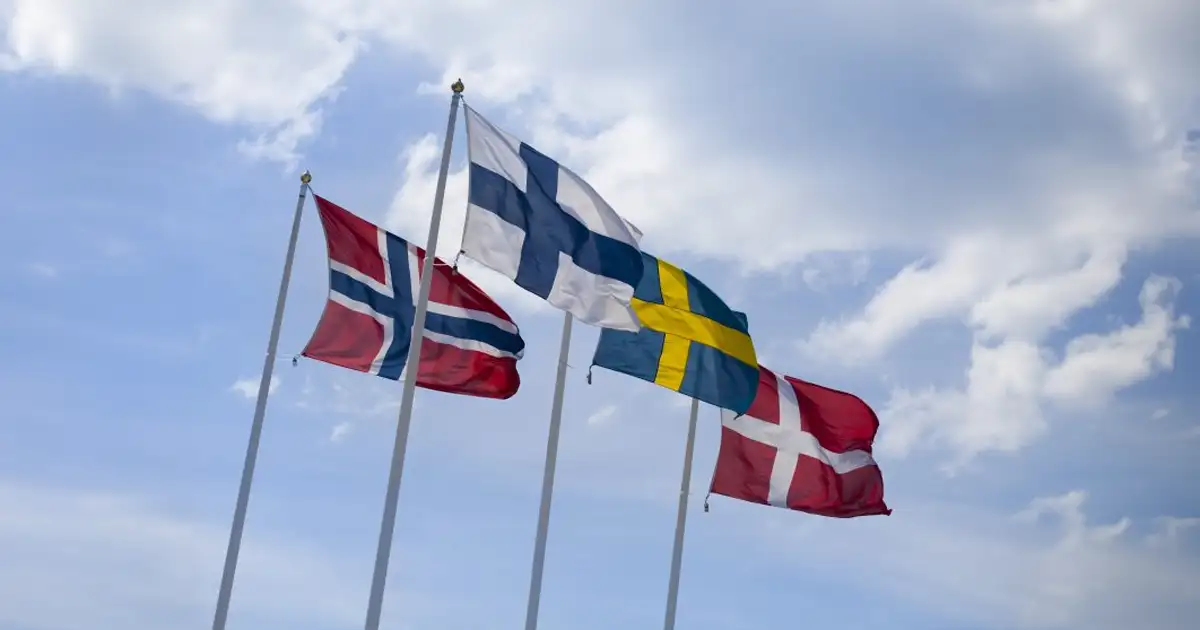Gambling monopolies in Scandinavia on the verge of collapse
The leaders of the Swedish and Danish gambling associations, Gustaf Hoffstedt (BOS) and Morten Ronde (Spillebranchen), believe that the gambling monopoly in countries such as Sweden, Denmark, Finland and Norway will soon disappear. According to them, the state-owned companies that currently have the monopoly will be sold to private parties in a few years.
State monopoly has no place in the commercial gambling world
Hoffstedt and Ronde are clear about it: a state monopoly has no place in a market that is increasingly dominated by commercial providers. “Normally, companies provide the money, while the government makes and monitors the rules,” says Hoffstedt. “But in the Nordic countries, the state itself is a major commercial player.”
Hoffstedt believes that there is an unhealthy relationship between the government and the state-owned companies. “They often put former politicians at the helm of state-owned gambling companies, and that creates a conflict of interest.”
The situation of the gambling monopolies in Denmark and Sweden
In Denmark, Sweden and Finland, the state-owned gambling companies are increasingly losing ground to commercial competitors. That is why industry associations and experts have been calling for some time for parts of these companies, or even the entire state monopoly, to be sold.
In Denmark and Sweden, Danske Spil and Svenska Spel still have the sole rights to lotteries and horse betting. But even these state-owned companies now offer commercial products, although the government remains the largest shareholder.
When Sweden opened up the gambling market in 2019, Svenska Spel was split into two companies: one that manages the monopoly and one that operates on the commercial market. They did this to comply with the law, Hoffstedt explains. However, this has never been officially challenged.
In Sweden, the moderate party, which Hoffstedt used to be a member of, asked in 2022 to privatize the commercial part of Svenska Spel. But even now that the party is in power, these plans have not yet been implemented. The Swedish Democrats, who are in the coalition, have already asked why that election promise has not yet been fulfilled.
Ronde has also urged the Danish government to sell their share in Danske Spil, but he notices that there is little interest from the government.
“It is now all about money”
“In my opinion, the state has no business in a completely open and competitive market,” says Ronde. “It has now simply become a way to make money, and even the ministries of finance throughout Europe know that this model is coming to an end. But of course they want to profit from it as long as possible.”
Danske Spil entered the commercial gambling market in Denmark in 2012 with a market share of 60%. That has now dropped to 25%, mainly due to the rise of flexible commercial providers.
“I think the market will let the monopoly disappear by itself,” says Ronde. “Danske Spil started with 60% of the market, now they only have 25%. In the end, the market will take care of itself.”
According to Hoffstedt, Svenska Spel has performed reasonably well since Sweden opened the online gambling market in 2019. However, he emphasizes that they had a big advantage thanks to their well-known brand and the ability to offer their monopoly services to commercial players.
There are now 75 commercial gambling providers active on the Swedish market, and according to Hoffstedt, the market is doing well without the state having to be involved.
Finland rushes to save monopoly
In Finland, they are now trying to liberalize the gambling market in order to save the ailing Veikkaus monopoly. Due to stricter rules for responsible gambling, Veikkaus has lost a lot of market share to foreign gambling companies in recent years. The company hopes that their results will improve if the market is liberalized.
“Veikkaus has not been competitive for a while,” said Finnish lawyer Antti Koivula. “In five years, they have lost 40% of their gross revenue. That is quite a lot.”
Finland plans to launch a regulated market in January 2026, after drafting the first rules in July. Jari Vähänen, former CEO of Veikkaus, publicly advised the government to sell its stake in the company.
“It is a questionable solution for the state to own a gambling company in a competitive market,” he wrote in his response to the proposed legislation.
What happens in Norway?
In Norway, the monopoly model seems set to continue for the time being. Currently, only Norsk Tipping and Norsk Rikstoto are authorised to offer slot machines, lotteries, online casinos and sports betting.
However, the Norwegian Conservative Party has indicated for the first time that they are open to changes in the system. In their election manifesto for 2025, they call for a re-regulation of the online gambling market and an end to the monopoly. This gives hope to advocates of reform.
The Norwegian online gambling industry association NBO believes that the market could be opened as early as 2028 thanks to this new political pressure.
The British lottery model as an example for the Nordics
Hoffstedt and Ronde point to the British National Lottery as a good example of how a monopoly should work. There, a private company runs the lottery through a public tender. This contract is valid for a maximum of ten years, after which a new tender is issued.
“My honest opinion? The lotteries should just run a lottery on their own, like in the UK,” says Ronde. Although he acknowledges that the advantage of a monopoly is that money is constantly invested in the lottery. “I think that the state gambling companies in the Nordics will eventually be privatized. Maybe not tomorrow, but it will definitely happen,” Hoffstedt concludes.


